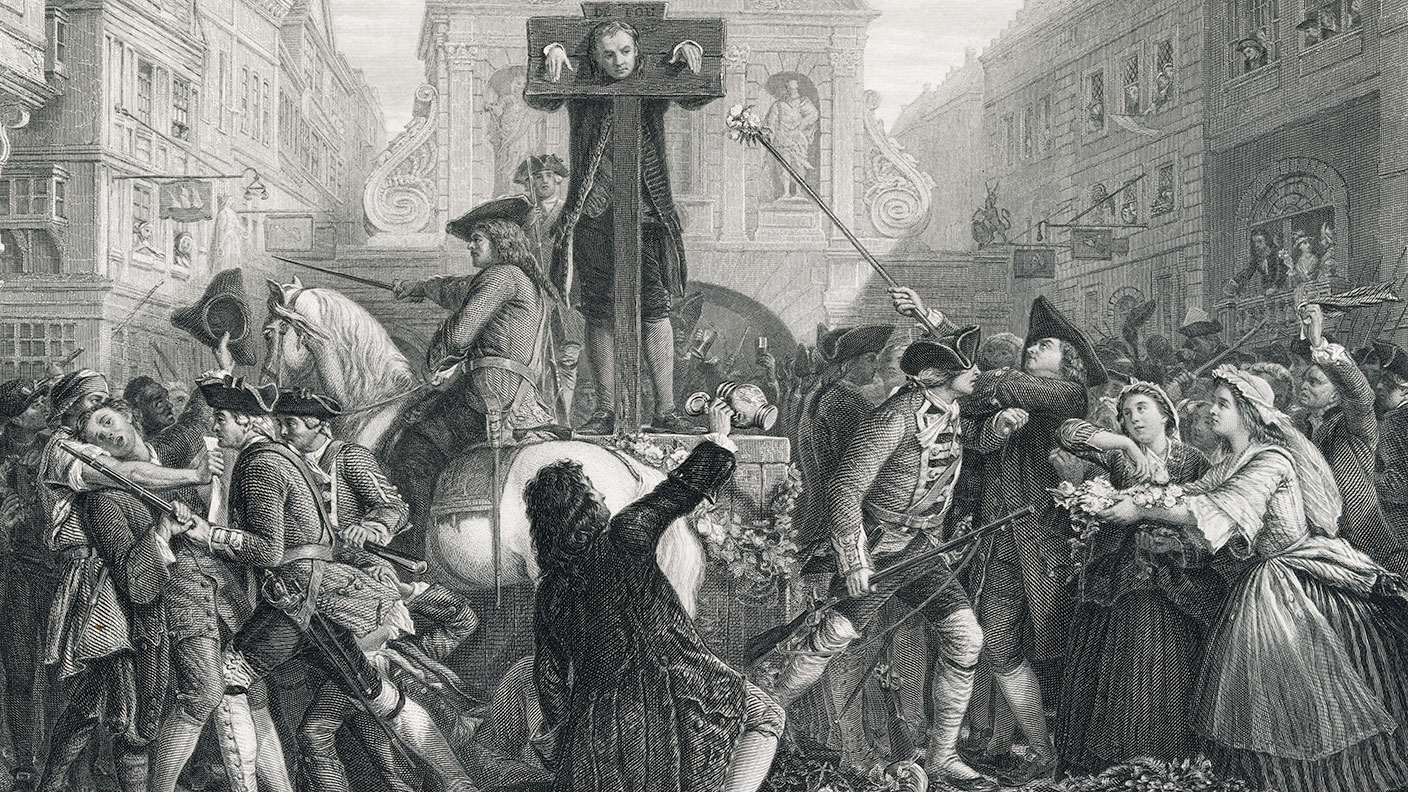
Get the latest financial news, insights and expert analysis from our award-winning MoneyWeek team, to help you understand what really matters when it comes to your finances.
You are now subscribed
Your newsletter sign-up was successful
Want to add more newsletters?

Twice daily
MoneyWeek
Get the latest financial news, insights and expert analysis from our award-winning MoneyWeek team, to help you understand what really matters when it comes to your finances.

Four times a week
Look After My Bills
Sign up to our free money-saving newsletter, filled with the latest news and expert advice to help you find the best tips and deals for managing your bills. Start saving today!
In 1702, Daniel Defoe a born and bred dissenter, wrote a satirical pamphlet called The Shortest Way with the Dissenters advocating death for papists and nonconformists. Unfortunately for Defoe, a lot of people took it seriously.
When the pamphlet's real nature was realised, the authorities were not pleased. Defoe was arrested and thrown in Newgate Prison. At his trial, he pleaded guilty. He was sentenced to spend three days in the pillory at the end of July, and to pay a hefty fine.
While waiting for his sentence to be carried out, he wrote A Hymn to the Pillory. The poem was read as Defoe stood in the pillory. The onlookers, who often pelted offenders with rotten food or worse, threw only flowers.
MoneyWeek
Subscribe to MoneyWeek today and get your first six magazine issues absolutely FREE

Sign up to Money Morning
Don't miss the latest investment and personal finances news, market analysis, plus money-saving tips with our free twice-daily newsletter
Don't miss the latest investment and personal finances news, market analysis, plus money-saving tips with our free twice-daily newsletter
After the pillory, Defoe was returned to prison. As he languished, his businesses failed, and he was unable to pay the fine that would release him.
Step forward minister of the Crown and top spook Robert Harley, 1st Earl of Oxford. He paid Defoe's debts and had him freed. In return, Defoe would write The Review, one of England's first periodicals, extolling the virtues of Her Majesty's government. Defoe was especially enthusiastic on the matter of the union of England and Scotland.
It wasn't long before Harley dispatched Defoe north to act as a spy. As a well-known dissenting Presbyterian, Defoe was welcomed into the Church of Scotland and became an adviser to the General Assembly. All the time, he was reporting back to Harley, and swaying opinion in favour of the Union.
For years, Defoe would write propaganda for the government, and it was not until relatively late on in life, in 1719, when he was approaching 60, that he published his most famous work, Robinson Crusoe.
Get the latest financial news, insights and expert analysis from our award-winning MoneyWeek team, to help you understand what really matters when it comes to your finances.

-
 Should you buy an active ETF?
Should you buy an active ETF?ETFs are often mischaracterised as passive products, but they can be a convenient way to add active management to your portfolio
-
 Power up your pension before 5 April – easy ways to save before the tax year end
Power up your pension before 5 April – easy ways to save before the tax year endWith the end of the tax year looming, pension savers currently have a window to review and maximise what’s going into their retirement funds – we look at how
